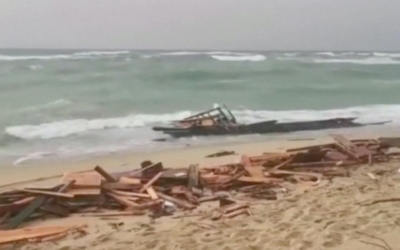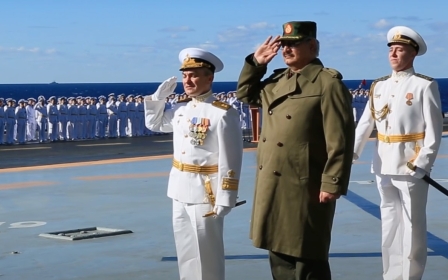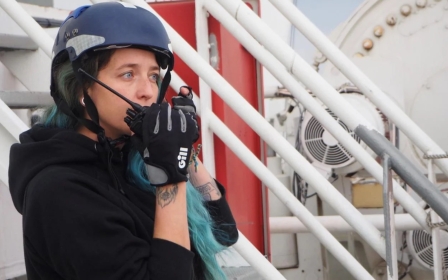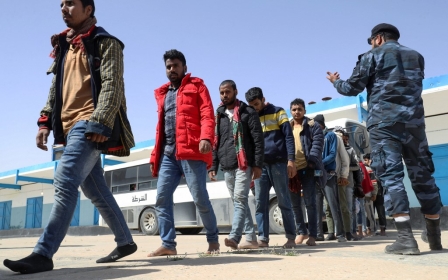Thirty people missing as charity accuses Italy of abandoning migrant vessel in distress
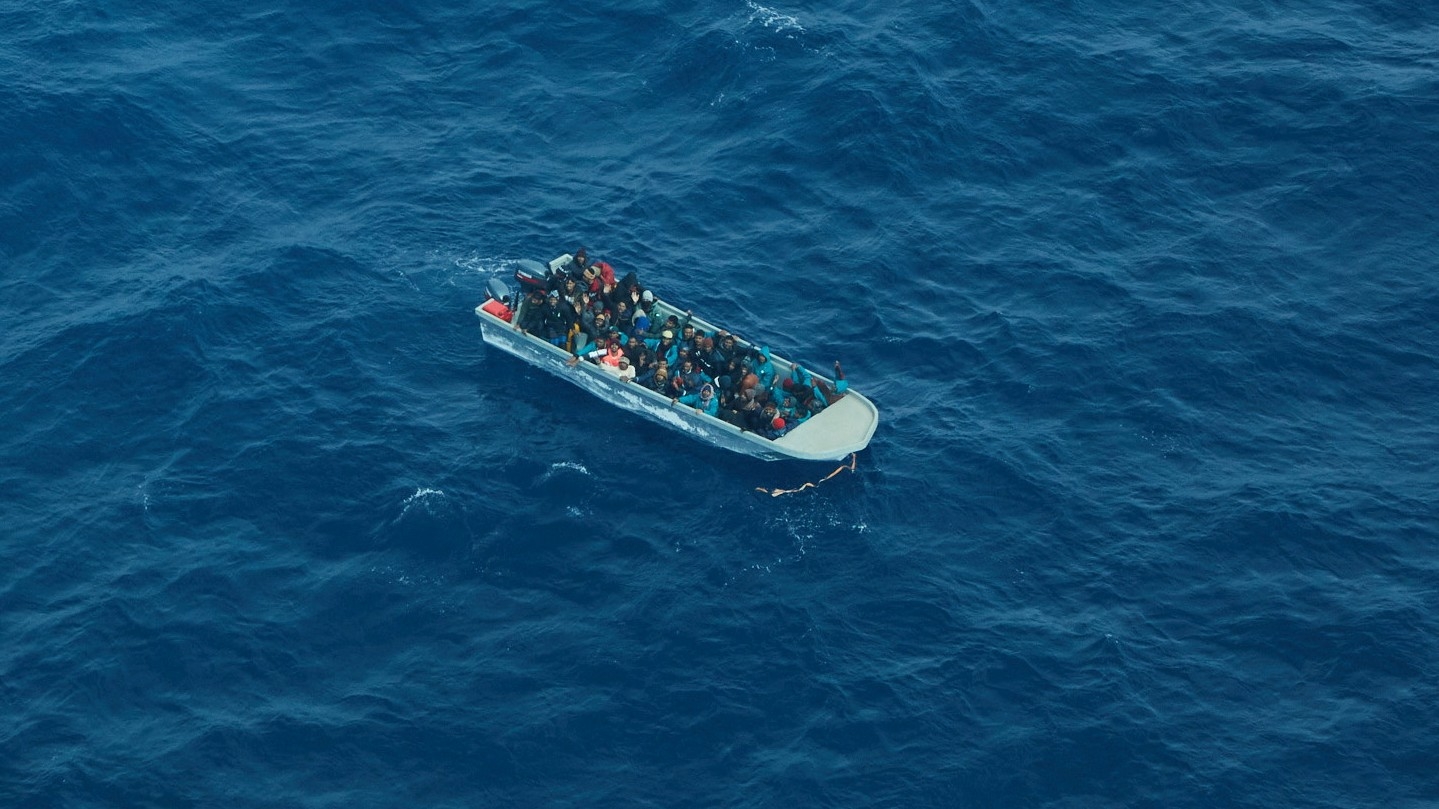
A migrant charity has accused Italian authorities of ignoring the plight of missing people during several crucial hours that could have saved lives.
At least 30 people were left missing at sea on Sunday after a boat capsized in bad weather in the Mediterranean, Italy's coastguard said.
The Italian Coast Guard Command conducted a rescue operation 177 kilometres off the Libyan coast after being alerted by the Alarm Phone charity, which receives calls from vessels in distress. Libyan authorities were also alerted.
Seventeen people were rescued on Sunday.
The Alarm Phone charity described a grim situation for those onboard, saying “weather conditions were extremely dangerous. The people on board were screaming on the phone that they needed help”.
New MEE newsletter: Jerusalem Dispatch
Sign up to get the latest insights and analysis on Israel-Palestine, alongside Turkey Unpacked and other MEE newsletters
In a statement, Alarm Phone said while it provided the GPS location of the migrants and warned Italian authorities of the deteriorating conditions of the people onboard the boat - its alerts went unheeded.
Alarm Phone requested that the Italian naval ship order a merchant vessel which was in the vicinity to intervene, but it “did not stop and passed by the scene of distress”.
More than nine hours after the first distress call only merchant vessels eventually responded to the distressed people on board. Neither Italian assets or assets of the European Union Naval Force in the region reached the scene of distress after many hours, said Alarm Phone.
“This delay, one of the many systematic delays Alarm Phone has documented over the years, proved to be deadly,” the statement added.
“Clearly, the Italian authorities were trying to avoid that the people would be brought to Italy, delaying intervention so that the so-called Libyan coastguards would arrive and forcibly return people to Libya, back to the torturous conditions they had tried to escape from."
Deadly crossings
The latest tragedy follows a similar one in February when at least 61 people, including children, died when their wooden sailing boat that had set sail from Turkey crashed against rocks on the southern Italian coast.
The vessel was carrying people from Afghanistan, Iran and several other countries, and the victims included 12 children, authorities said.
The incidents comes a few months after far-right Prime Minister Giorgia Meloni, the leader of the "post-fascist" Brothers of Italy party, won power in October, partly on a promise to stem the flow of migrants reaching Italian shores.
Her right-wing administration has taken a hard line on migration since taking office in October, mostly by restricting the activities of migrant rescue charities with tough new laws that won final parliamentary approval on Thursday.
Meloni accuses charities of encouraging migrants to make the dangerous sea journey to Italy, acting as so-called "pull factors".
Italy is one of the main landing points for people trying to enter Europe by sea, with many seeking to travel on to richer northern European nations. The so-called central Mediterranean route is known as one of the world's most dangerous.
The United Nations Missing Migrants Project has registered more than 17,000 deaths and disappearances in the central Mediterranean since 2014.
More than 220 have died or disappeared this year, it estimates.
Middle East Eye delivers independent and unrivalled coverage and analysis of the Middle East, North Africa and beyond. To learn more about republishing this content and the associated fees, please fill out this form. More about MEE can be found here.


